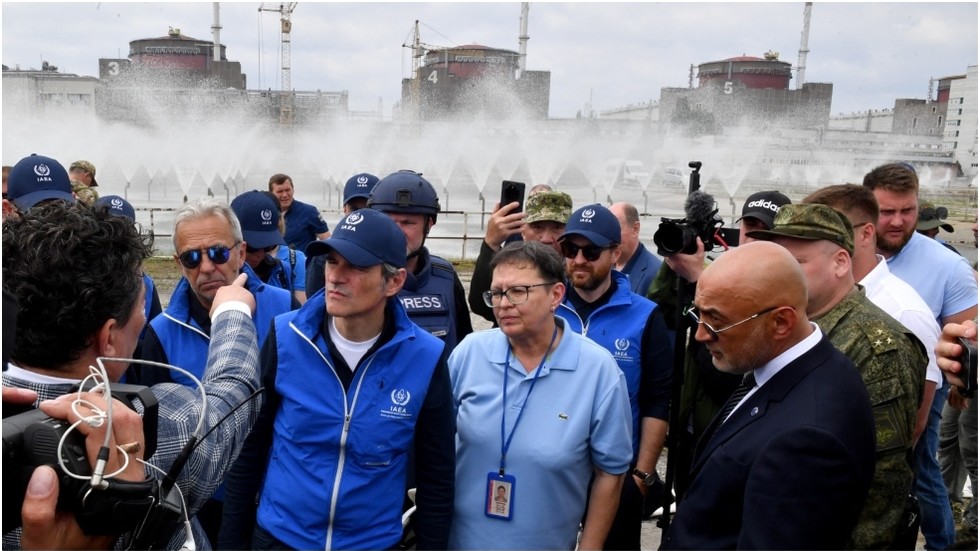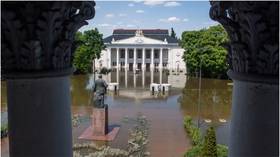
It is “unrealistic” that the two countries can agree on how to protect Europe’s largest nuclear power plant, the head of the atomic watchdog said

International Atomic Energy Agency Director General Rafael Mariano Grossi visits the Zaporozhye Nuclear Power Plant, June 15, 2023. © Olga Maltseva / AFP
Russia and Ukraine are very unlikely to strike a deal on maintaining the safety of Europe’s largest nuclear power plant unless the fighting is stopped, International Atomic Energy Agency (IAEA) Director General Rafael Mariano Grossi said on Thursday.
“Reaching a written agreement would be unrealistic at this stage because – as we know, there are no peace or ceasefire negotiations between the parties,” Grossi was quoted as saying by Russian news agency TASS after he had arrived at the Zaporozhye Nuclear Power Plant (ZNPP), which sits dangerously close to the front line.
The IAEA team inspected the facility 10 days after the Kakhovka hydroelectric dam collapsed and drained reservoir used to cool the plant’s reactors. Grossi said that the water level at the cooling pond was sufficient to keep the ZNPP operational for the time being.
“On the one hand, we can see that the situation is serious, the consequences [of the dam’s destruction] are there, and they are real,” Grossi told reporters. “At the same time, there are measures that are being taken to stabilize the situation.”

Read more
Grossi added that inspectors would monitor the developments on the ground in order “to help prevent a nuclear accident.”
Five out of the ZNPP’s six reactors have been shut down, while the remaining unit is producing a low level of power to maintain the plant’s functionality. Moscow and Kiev have repeatedly accused each other of shelling the facility. The countries also blamed one another for the destruction of the Kakhovka dam, which caused flooding and prompted evacuations of civilians on both sides of the front line.
Russia’s national atomic plant operator Rosenergoatom said on Tuesday that its personnel would ensure the safety of the ZNPP and that a mobile pumping unit had recently been brought to the plant.




